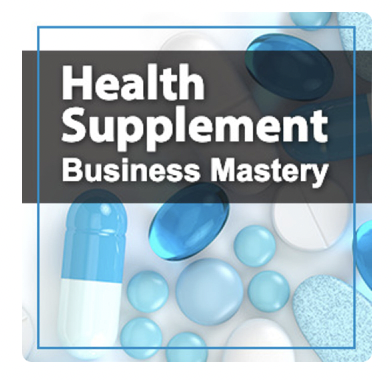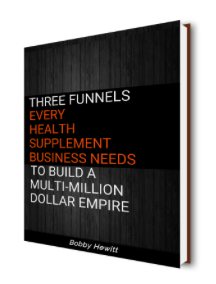In the previous article we discussed what claims ARE allowed for dietary supplements. This article will look at what you’re NOT allowed to say in your dietary supplement marketing and advertising.
You may have heard that you cannot make any claims for dietary supplements what so ever. That’s a half truth. There are many claims you cannot make and lots of health marketers get into trouble by making improper claims for dietary supplements. But there are two exceptions of drug claims that you can make, that we didn’t cover in – Dietary Supplement Claims: What’s Allowed – and those are:
Disease claim and a Benefit claim.
A disease claim can be used, if the condition of the claim is classified as a disease, and if it is the subject of an authorized health claim. If you want to learn more get the downloadable PDF that covers health claims that the FDA has authorized by regulation in more depth. If your disease claim does not satisfy both of the conditions above, then they will be subject to regulation as a drug. Which is a whole other ball of wax.
The second claim, a benefit claim, is one that describes the benefit from a particular dietary ingredient that someone may be nutrient deficient in. For example vitamin C and scurvy, like all pirates know… ARRRGH! A good rule of thumb is as long as the claim also talks about how widespread the disease is then it’s a safer bet. But before we get too far, let’s first recap what is meant by a claim.
What is a Supplement Marketing Claim?
The Food and Drug Administration (FDA) has traditionally used the term “claim” to refer to any statement made by a manufacturer or marketer that recommends or suggests a particular use of a product. The Food, Drug, and Cosmetic Act specifically sites: Articles intended for use in the diagnosis, cure, mitigation, treatment, or prevention of disease in man or other animals. The specific part of the Food, Drug, and Cosmetic Act that defines a “drug” which trips up most health marketers is the part about “intended use” and “disease”.
It has been the FDA’s longstanding interpretation that the phrase “intended use” refers to the objective intent of the manufacturer, which leaves this wide open for interpretation, just like the lawyers like.
Here’s the bottom line for what’s NOT Allowed. If you claim that your product has an “effect”. For example if your sales copy says it cures, treats, prevents, or mitigates a disease or a class of diseases, then you are making a drug claim. A claim that a product “protects against the development of cancer” or “reduces the pain and stiffness associated with arthritis” would be a disease claim. Because both cancer and arthritis are medically classified as diseases.
A statement is also considered a disease claim if it implies that it has an effect on a specific disease or class of diseases by using descriptions of the disease state, even though it does not specifically mention the disease. For example, an implied disease claim would be: “improves joint mobility and reduces inflammation”. This implies that your product is for treating the disease: rheumatoid arthritis. An implied claim of “relief of bronchospasm” implies treatment of the disease: asthma. It is important to note that we’re only talking about a drug claim here, see the previous article to learn about the different types of claims.
You may make general statements about health promotion and disease prevention as long as the statement does not imply that your product can diagnose. An example of an acceptable claim is “a good diet promotes good health and prevents the onset of disease” or “better dietary and exercise patterns can contribute to disease prevention and better health.”
In Summary, you cannot make a disease claim if your claim:
- Has an effect on a specific disease or class of diseases
- Has an effect on the characteristic signs or symptoms of a specific disease or class of diseases, using scientific or lay terminology.
- Has an effect on an abnormal condition associated with a natural state or process, if the abnormal condition is uncommon or can cause significant or permanent harm.
- Has an effect on a disease or diseases through one or more of the following factors:
- A statement about the formulation of the product, including a claim that the product contains an ingredient (other than an ingredient that is an article included in the definition of “dietary supplement” under 21 U.S.C. 321(ff)(3)) that has been regulated by FDA as a drug and is well known to customers for its use or claimed use in preventing or treating a disease
- A Citation of a publication or reference, if the citation refers to a disease use, and if, in the context of the labeling as a whole, the citation implies treatment or prevention of a disease.
- Use of the term “disease” or “diseased,” except in general statements about disease prevention that do not refer explicitly or implicitly to a specific disease or class of diseases or to a specific product or ingredient.
- Use of pictures, vignettes, symbols, or other means.
- Belongs to a class of products that is intended to diagnose, mitigate, treat, cure, or prevent a disease.
- Is a substitute for a product that is a therapy for a disease.
- Augments a particular therapy or drug action that is intended to diagnose, mitigate, treat, cure, or prevent a disease or class of diseases.
- Has a role in the body’s response to a disease or to a vector of disease.
- Treats, prevents, or mitigates adverse events associated with a therapy for a disease, if the adverse events constitute diseases.
- Or otherwise suggests an effect on a disease or diseases.
The bottom line is you cannot make any claims about curing, preventing, treating, or mitigating any disease. An easy rule of thumb to remember is that drug claims and dietary supplement claims are at opposite ends of the claim spectrum. Drug claims can easily trip you up so avoid them. Dietary supplement claims are all about maintaining optimal health.
To learn more about what claims are allowed read our previous article – Dietary Supplement Claims: What’s Allowed. Download a special report – How To Use Dietary Supplement Claims That Will Keep You From Being Sued, Shutdown and Thrown In Jail – that goes into this topic in more detail.
Discover the 3 funnels that can help your health supplement business succeed.

Listen to the Health Supplement Business Mastery Podcast for for dietary supplement entrepreneurs and marketers.




Thank you for sharing this article. it was very informative and amazing content. Keep Sharing.